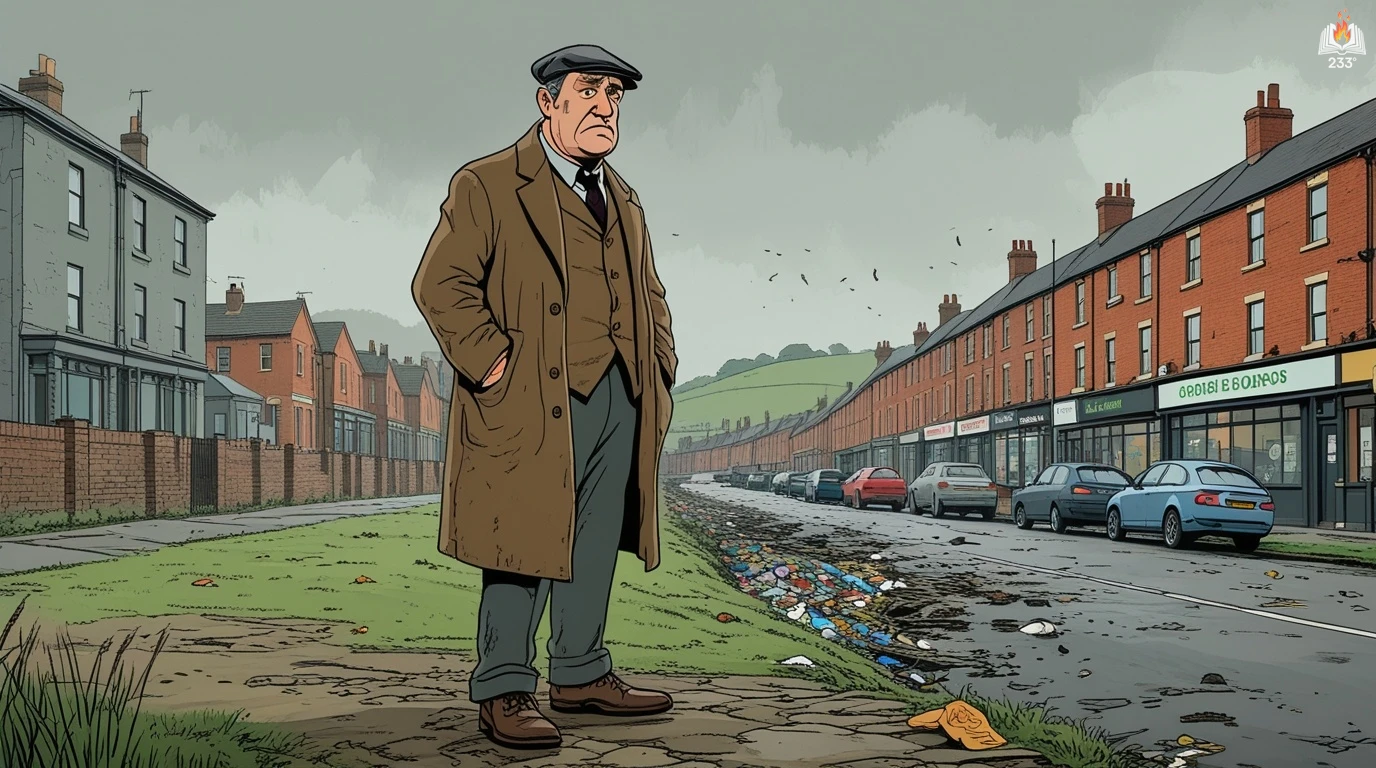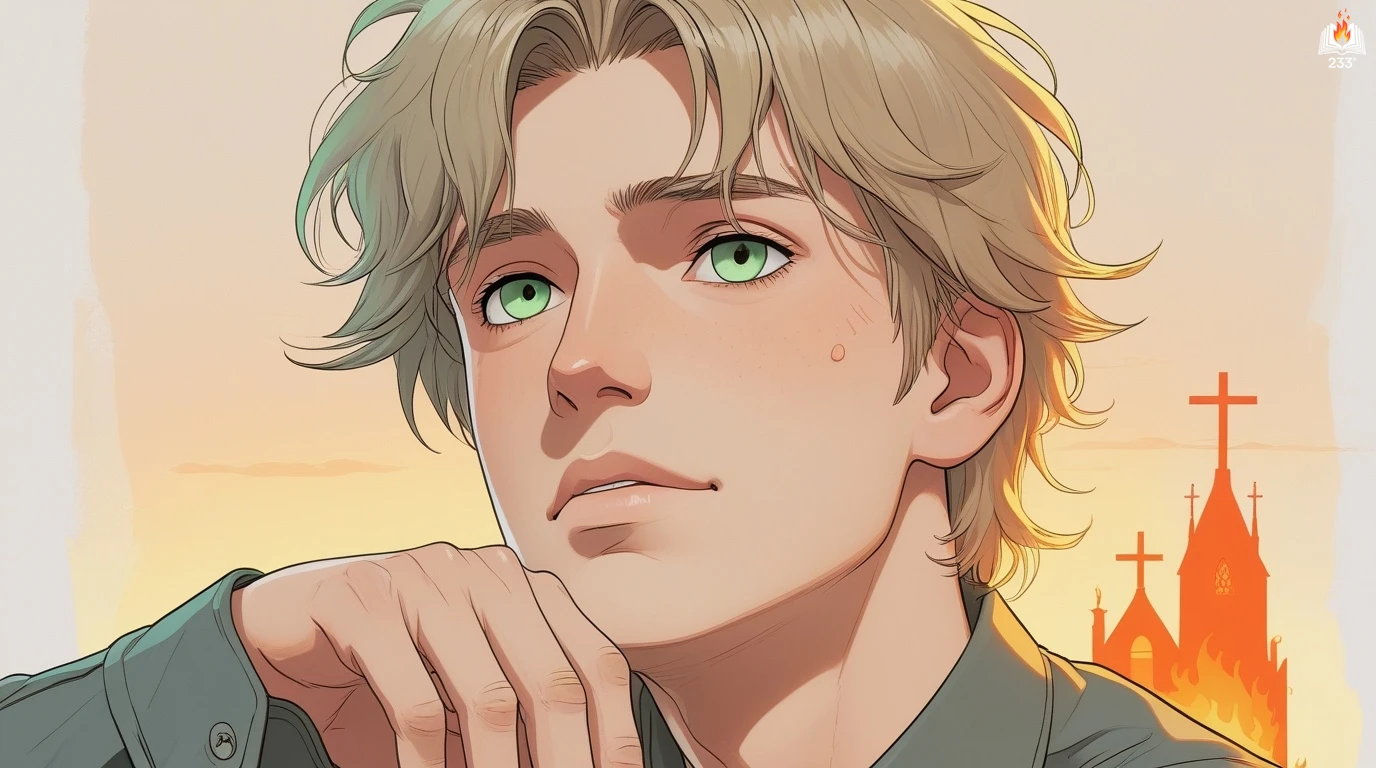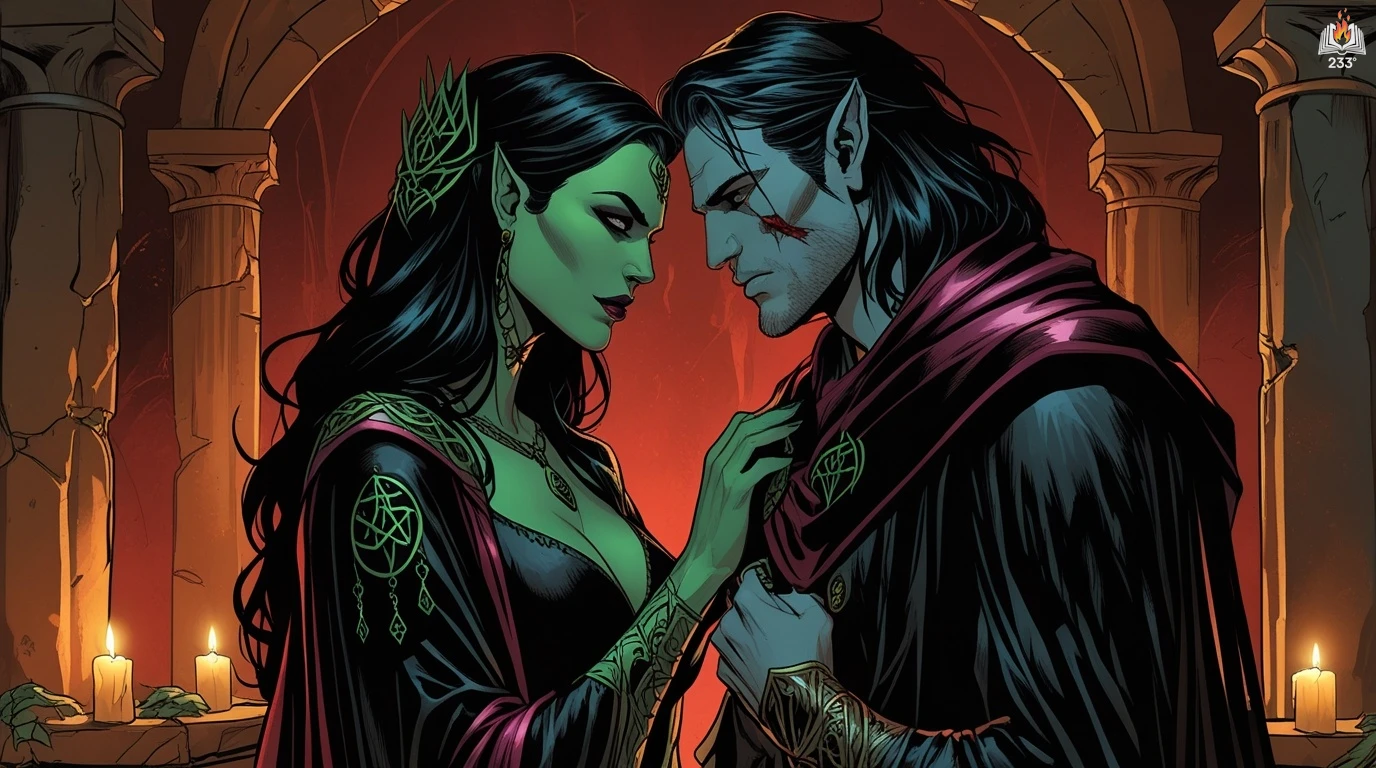The Judges, written by Elie Wiesel and published in 1999, is a profound psychological novel by the Nobel laureate, best known for his writings on the Holocaust and moral struggle. While not part of a series, the novel carries forward Wiesel’s lifelong exploration of memory, guilt, and the human condition, centering on five airplane passengers forced to confront judgment, guilt, and responsibility when they are stranded in a remote house during a storm.
Plot Summary
Outside, the snow raged like a living beast, swallowing the world in white silence. A small cabin, hidden in the mountains between New York and Boston, flickered with a fragile light – inside, five strangers gathered by chance, or perhaps by design. Their plane, bound for Israel, had been forced to land at a small airfield in Connecticut. Stranded, they found refuge in the home of a man who called himself the Judge.
Razziel, principal of a Talmudic school, sat quietly, his thoughts adrift in memories of his old master, Paritus, a figure half-sage, half-shadow, waiting for him in Jerusalem. Yoav, an Israeli soldier hardened by war, bore the quiet weight of terminal illness and memories of battles survived but never escaped. Claudia, fiery and quick-tongued, masked loneliness with wit, while Bruce, the brash playboy, cloaked his fear beneath bursts of anger. George, the archivist, clung to his silences, guarding secrets behind wire-rimmed glasses and a mild demeanor.
Their host, the Judge, a man with piercing eyes and unnerving calm, welcomed them into his home with a warmth that felt too rehearsed, too smooth. His hunchbacked assistant, a grotesque figure with a strangely melodic voice, hovered in the background, watching, waiting. The Judge spoke of hospitality, of tea, of parlor games to pass the long stormy night. But there was something brittle beneath his civility, a tension that clung to every word.
The game began with introductions – names, professions, pasts laid bare like offerings. Razziel spoke of his yeshiva, Yoav of his army service, Claudia of her work in theater, Bruce of his wandering pursuits, George of his archives. Yet behind each confession lurked things unsaid, shadows pressing at the edges of speech. The Judge collected their words like evidence, folding them into a notebook, his expression inscrutable.
The night deepened, the storm howled, and the mood in the room thickened. The Judge’s questions grew sharper, less like a host making conversation, more like a prosecutor dissecting a case. Bruce bristled, lashing out with sarcasm and defiance. Claudia tried to smooth tempers with charm, but the Judge’s eyes lingered on her with a disquieting interest. George sank further into himself, a man trained to preserve memory yet desperate to hide his own. Yoav watched, silent but alert, the instincts of a soldier reading the terrain of danger.
When the Judge declared the house locked and their movement forbidden, the unease turned to dread. Bruce’s attempt to test the door met only resistance. The Judge, calm as ever, announced that their presence in his house was no accident. There were debts to be paid, truths to be unearthed, and above all, judgment to be passed. Outside, the wind battered the walls like an impatient god.
Each was called to account. Bruce, with his restless hedonism, was pressed on his careless pleasures and the empty conquests that defined his life. Claudia, the survivor cloaked in performance, was invited to confess the loneliness beneath her laughter. George, keeper of archives, was forced to confront the silence he hoarded, the truths he buried to protect himself. Yoav, the soldier, faced the specter of death – not the enemy’s, but his own. And Razziel, the seeker, was asked to illuminate the cracks in his faith, the childhood he could not remember, and the longing that pulled him toward Jerusalem and his elusive friend.
As the night unraveled, the five strangers turned toward one another. Suspicion and hostility softened into uneasy camaraderie. They passed secret glances, whispered warnings, devised tentative plans. Yoav, reading the room like a battlefield, scouted their confinement and scribbled a quiet call for unity on a scrap of paper. Claudia, moved by his quiet resolve, became a bridge between them. Even Bruce’s anger was tempered by a dawning recognition that they were no longer players in a game, but prisoners in a trial.
The hunchback, drifting in and out like a shadow, became an unexpected mirror. In his twisted body, the passengers glimpsed their own fears, their own hungers for love and acceptance. Claudia, with a flicker of tenderness, stirred in him a buried longing he had never dared acknowledge. Yet he, too, was bound, a slave to the Judge’s will, caught between complicity and rebellion.
The Judge, meanwhile, tightened his grip. His interrogations sliced deeper, no longer content with the surface of lives, but cutting into wounds, betrayals, sins half-buried in memory. His voice, once polished and genial, grew harder, colder. The house, once a refuge, became a court. Outside, the storm raged on, indifferent.
As dawn crept toward the horizon, the walls between judge and judged trembled. Yoav’s plan emerged – not a grand escape, but a silent refusal to break, a refusal to surrender to the theater of accusation. The passengers, once strangers, now sat together, bound by shared fear and a stubborn will to endure. Even Bruce, stripped of bluster, and George, drawn from his archives of silence, leaned into the fragile alliance.
Razziel, the last to be called, faced the Judge’s questions with a quiet strength. He spoke not only of law and tradition, but of mercy, of the ancient struggles between justice and compassion. His words carried the weight of his faith, a faith weathered by doubt yet unbroken. In him, the Judge found not a defendant, but a mirror.
In those final hours, the Judge’s mask began to slip. His need for control, his obsession with judgment, was laid bare – a wound masquerading as authority. The hunchback, watching from the shadows, hovered on the brink of intervention, torn between loyalty and a desperate longing to break free.
Outside, the storm began to ease, the sky paling from black to gray. Inside, the passengers waited, no longer merely guests, but witnesses to a reckoning larger than themselves. The Judge, once towering, seemed smaller now, caught in the web of his own making. And as the first light pierced the storm’s remains, something in the room shifted – not a resolution, not a victory, but a breath, a crack in the darkness, a hint of release.
The snow, which had threatened to bury them all, softened into stillness. The house remained, battered but standing, holding within it five strangers who had become, if not friends, then something closer to comrades. In that cold, quiet dawn, the question hung – who, in the end, judges the Judge?
Main Characters
Razziel: A principal of a Talmudic school and a man haunted by an amputated past, Razziel searches for meaning and reconciliation with his memories. Reflective and deeply spiritual, he seeks guidance from his enigmatic mentor, Paritus, and becomes the novel’s moral center, striving to hold the group together as tensions mount.
Yoav: An Israeli reserve officer marked by the trauma of war and a terminal illness, Yoav is stoic, introspective, and often withdrawn. His deep inner struggle between his military past, his love for Carmela, and his impending death gives his character layers of quiet heroism and profound vulnerability.
Claudia: A bold, vivacious young woman with a sharp tongue and survivor’s instincts, Claudia oscillates between defiance and charm. Beneath her confident exterior lies a fear of vulnerability, and over time she reveals both warmth and sharp intelligence as she navigates the group’s mounting peril.
Bruce Schwarz: A fiery, impulsive man with a theatrical temperament, Bruce is easily angered and confrontational, often expressing his anxiety through bluster. His red scarf and emotional outbursts make him a vivid figure, though his bravado masks deep fear and insecurity.
George Kirsten: An archivist, cautious and intellectual, George is the methodical observer among the group. Preoccupied with a secret document and haunted by past choices, George embodies the tension between historical duty and personal survival, blending scholarship with moral uncertainty.
The Judge: The host, a mysterious and menacing figure, whose tragic past and obsession with justice transform him into both host and tormentor. Charismatic yet cruel, the Judge forces the group to confront moral dilemmas, blurring the line between game and life-or-death trial.
The Hunchback: The Judge’s servant, both grotesque and pitiable, who wrestles with conflicted loyalty. His presence unsettles the group, and his own internal struggle becomes symbolic of complicity and submission in the face of authority.
Theme
Judgment and Responsibility: At the novel’s core is the theme of judgment – both divine and human. The passengers are compelled to judge one another, reflecting how humans navigate morality under extreme pressure. This exploration probes the very nature of guilt, innocence, and justice.
Memory and Identity: Characters wrestle with fragmented memories, hidden pasts, and questions of identity. Razziel’s search for meaning, Yoav’s haunted past, and George’s archival obsession all reflect the burden of memory and the longing for coherence in personal and collective histories.
The Absurd and the Game of Life: The Judge’s sadistic ‘game’ evokes existential questions about meaning, freedom, and absurdity. The characters’ entrapment becomes a metaphor for human existence, where individuals struggle against invisible forces, much like players in an incomprehensible divine drama.
Survival and Sacrifice: Survival instincts clash with moments of sacrifice, as characters contemplate self-preservation versus communal responsibility. Yoav’s reflections on soldierly duty and the Judge’s demand for a scapegoat spotlight the cost of survival and the power of self-sacrifice.
Writing Style and Tone
Elie Wiesel’s writing in The Judges is rich, meditative, and lyrical, weaving philosophical reflection with suspenseful narrative. His language moves fluidly between stark realism and poetic abstraction, inviting readers into the characters’ inner worlds while maintaining a taut, almost claustrophobic atmosphere. The dialogue often carries an allegorical weight, with characters speaking not only as individuals but as representatives of larger moral questions.
The tone of the novel is somber, introspective, and laden with moral tension. Wiesel balances the thriller-like pacing of a hostage scenario with deep ethical exploration, suffusing the narrative with existential dread and spiritual searching. Even amid the unfolding crisis, moments of tenderness, humor, and sorrow punctuate the prose, creating a layered emotional experience. Wiesel’s hallmark is his ability to confront darkness without surrendering to despair, and in The Judges, that balance between nightmarish trial and human resilience is rendered with profound artistry.
We hope this summary has sparked your interest and would appreciate you following Celsius 233 on social media:
There’s a treasure trove of other fascinating book summaries waiting for you. Check out our collection of stories that inspire, thrill, and provoke thought, just like this one by checking out the Book Shelf or the Library
Remember, while our summaries capture the essence, they can never replace the full experience of reading the book. If this summary intrigued you, consider diving into the complete story – buy the book and immerse yourself in the author’s original work.
If you want to request a book summary, click here.
When Saurabh is not working/watching football/reading books/traveling, you can reach him via Twitter/X, LinkedIn, or Threads
Restart reading!








